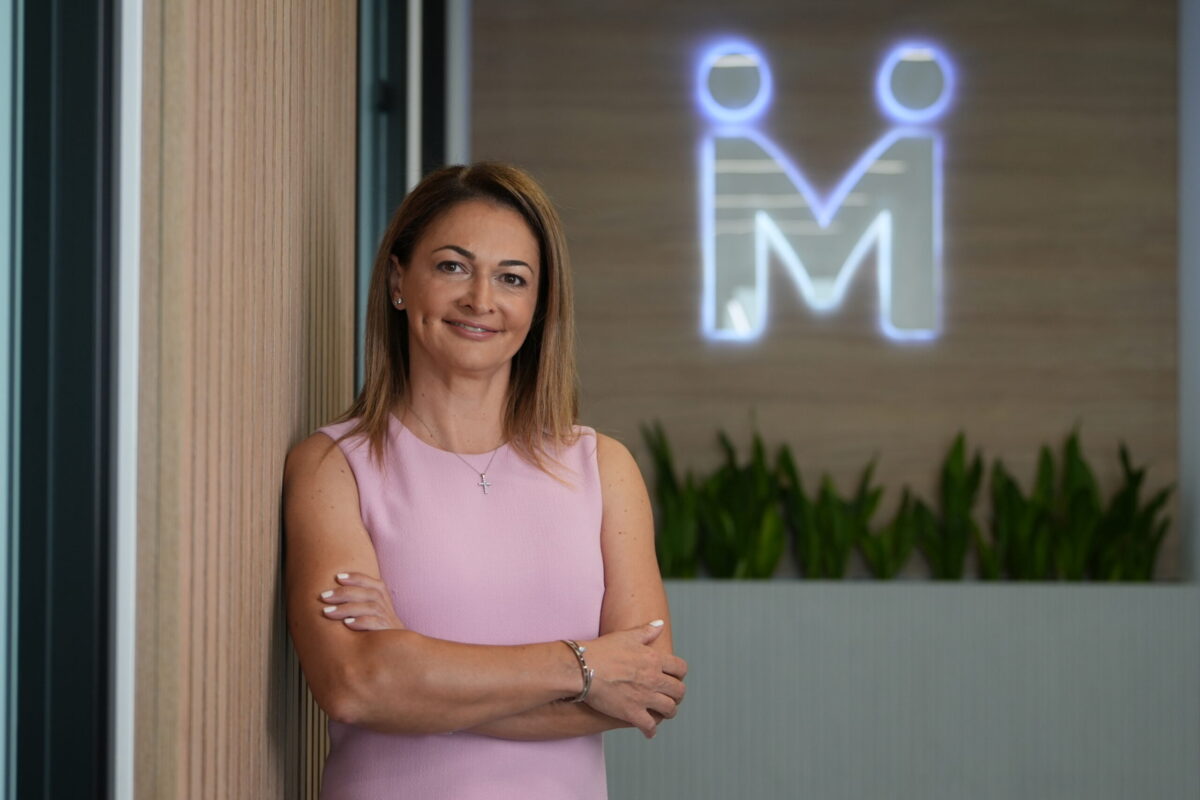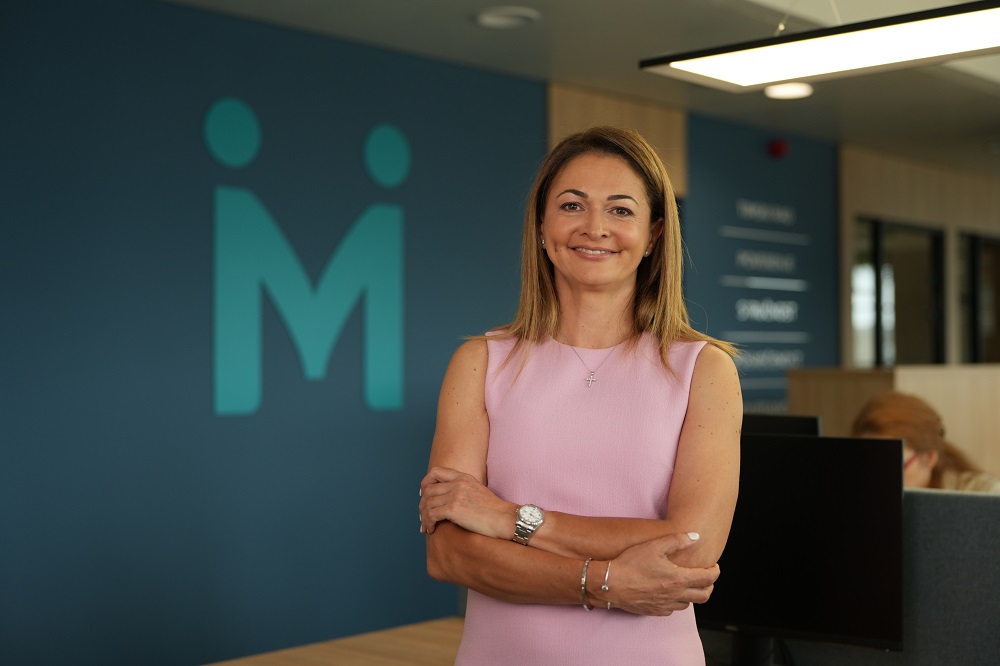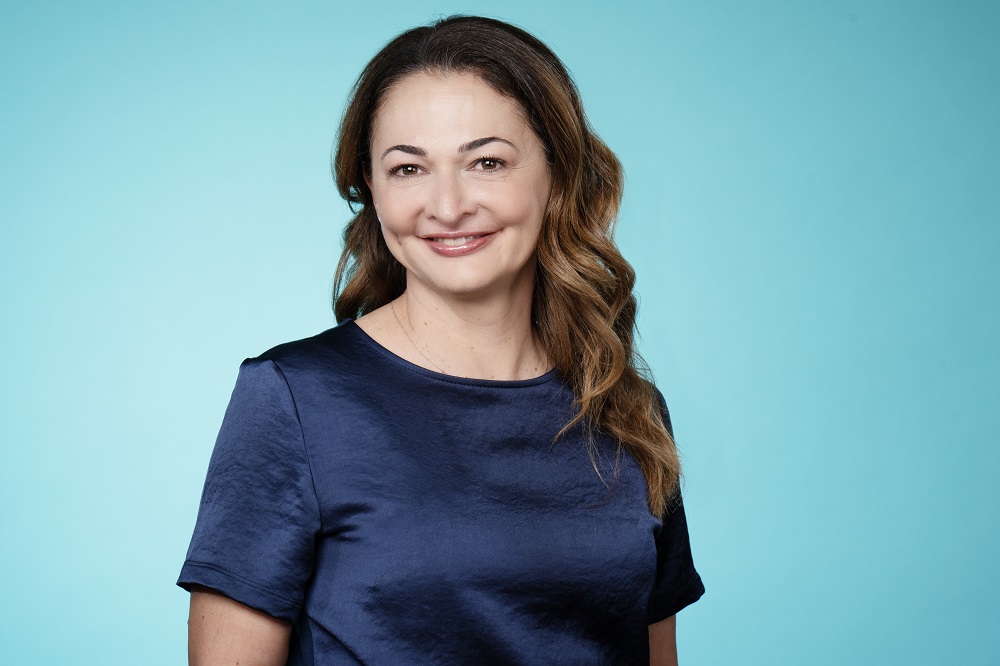Satisfied Patients are the Core of our Growth
 An international expert in banking, Marijana Vasilescu has directed her experience towards solidifying field leadership of MediGroup, the biggest player in private healthcare in Serbia.
An international expert in banking, Marijana Vasilescu has directed her experience towards solidifying field leadership of MediGroup, the biggest player in private healthcare in Serbia.
MediGroup is now everywhere, but at the same time, it remains visibly invisible or invisibly visible, if you will, given the very low-key presence in terms of advertisement. You started about a decade ago, and you are already the biggest company in the field of private healthcare. How did something so discreet in a place where discreet is not exactly the modus operandi, become so successful so quickly?
MediGroup, established in 2013, has achieved market leadership and high brand awareness in the healthcare sector, despite our subtle advertising. Our brand is well-recognized and top of mind among citizens of Serbia. In the beginning, we focused on enhancing accessibility and improving service quality. The initial priority was to establish a strong foundation, allowing people to recognize our brand. Now, we can enter a phase of increasing our public presence and advertising efforts. The story of MediGroup is a natural development when it comes to private medical services in the country. In 2013 we started with eminent Dr Ristic and Jedro health centers, and well-known IVF center Jevremova, and then continued with the acquisition of some of the recognized names in the field of private medical healthcare – laboratories, hospitals. Also, the Jevremova clinic and the ophthalmology clinic Miloš with their doctors renowned in Europe helped consolidate our presence in the minds of Serbia’s residents. In terms of private maternity, we dominate in the market, and we recently celebrated the 6000th baby born in our maternity ward in Belgrade. Furthermore, another major acquisition was a couple of years ago when we acquired the leading laboratory network, Konzilijum, which puts us at the very top when it comes to laboratory services. So, all in all, we just consolidated our leadership position, and we are now the clear market leader in Serbia. We have laboratories all over the country, and in terms of outpatient services, we have a presence in Belgrade and Novi Sad, where we are currently working on opening another center, as well as in Subotica, Niš, Smederevo, and soon in Kragujevac also, while Pančevo, too, is on our radar. We aim for our patients to easily find us wherever they are in Serbia.
Where is Serbia right now in terms of the private healthcare market?
Serbia is developing significantly in this sector, and there is considerable potential here. The private healthcare market is experiencing strong double-digit growth year-on-year, with an estimated market size of about 350 million euros in 2023. I was born in Romania, where I also began my career, and MediGroup has strong connections with Romania’s private healthcare leader, Regina Maria, so I can compare the beat of both markets, even though Romania is a significantly larger country. It has a market size of about 4.5 billion euros, and I believe that difference emphasizes the immense potential in the Serbian market.
We are investing in new equipment to complement our team of top experts
And how would you like to grow?
Our primary focus has been to establish a comprehensive range of services, a goal we’ve achieved through the acquisition of renowned private healthcare institutions. As a result, we’ve evolved into a sizable system, where over 2000 people collaborate. Along with our growth, our commitment to ensuring patient satisfaction remains unwavering. To this end, we’ve established a dedicated patient care division, intensifying our focus on monitoring service quality. Within this division, we are defining and implementing standards and providing comprehensive training to our personnel at all levels to ensure adherence. Satisfied patients are the core of our growth. Additionally, as we’ve acquired numerous institutions with their own established practices, consolidating our workforce under a unified corporate culture and a unique umbrella brand is key. Furthermore, we are investing in new equipment to complement our team of top experts.
 You have worked in Kazakhstan and Russia; you studied in Bucharest and also in London but you opted not to stay in the West. Does this mean there is some kind of a business renaissance in the East?
You have worked in Kazakhstan and Russia; you studied in Bucharest and also in London but you opted not to stay in the West. Does this mean there is some kind of a business renaissance in the East?
Drawing from my personal experience, having been born and raised in Romania, an emerging market characterized by rapid development, I’ve witnessed significant double-digit growth rates in sectors like banking and retail banking, a phenomenon not commonly seen in the West. Coming from an underdeveloped position, however, offers the advantage of greater agility in implementing new ideas and systems. This period presents an exciting time, particularly in private healthcare. For instance, MediGroup is experiencing an annual growth rate exceeding 20% in Serbia. This broader trend of growth across this region is attracting the attention of individuals who have ventured to the West for learning and development opportunities but are now returning. We must capitalize on this momentum to create an environment that fosters their return.
What could Romanian business practice learn from Serbia and vice versa?
Compared to other countries in the former socialist bloc, Romania endured perhaps one of the most challenging historical experiences. The early 1990s characterized a sobering period marked by corruption and slow development, a necessary transition from a repressive dictatorship. That period may have been essential for maturing and understanding the responsibilities of democracy. Until the year 2000, Romania’s development lagged behind that of the neighboring countries. However, following the EU accession process, progress accelerated exponentially. I believe Serbia can draw valuable lessons from Romania’s experiences to navigate its transition more effectively. Given the strong rapport between our nations, there’s a big potential for deeper mutual understanding and learning. While both Serbia and Romania have looked towards Western Europe for inspiration, I advocate for a closer examination of our shared experiences. By learning from each other, we can unlock our full potential and support one another’s development.
Coming from an underdeveloped position offers greater agility in implementing new ideas and systems
Finally, as you mentioned that you are part Serbian, do you believe your origins help you navigate better your life in Belgrade?
It undeniably contributes to my sense of relaxation and to being more tolerant towards the environment I live in, while also providing valuable insight. Unfortunately, the pride people have here can frequently be channeled less than productively, but if it is redirected toward growth, it can unlock remarkable potential.
